Fox News Flash top headlines for May 16
Fox News Flash top headlines are here. Check out what's clicking on Foxnews.com.
Steve Wilson may have only one kidney, but that hasn't slowed him down.
Wilson, 55, of Westchester County, New York, donated one of his kidneys a little over two years ago, on Feb. 6, 2020.
As an avid athlete and cyclist, Wilson was determined to prove that the procedure didn’t change his lifestyle — so, earlier this year, he climbed to the summit of Mt. Kilimanjaro.
"For me, it’s such a great trade-off," Wilson told Fox News Digital about donating his kidney. "You’ve given the ultimate gift. You’ve given somebody a second chance at life. And it doesn’t cost you but two weeks of your own."
'Chills came over me'
Wilson donated his kidney in what’s known as a non-directed, or altruistic, living-donor transplant, which means he doesn’t know or have any connection to the person who received his kidney. Wilson told Fox News Digital he still doesn’t know who his recipient is.
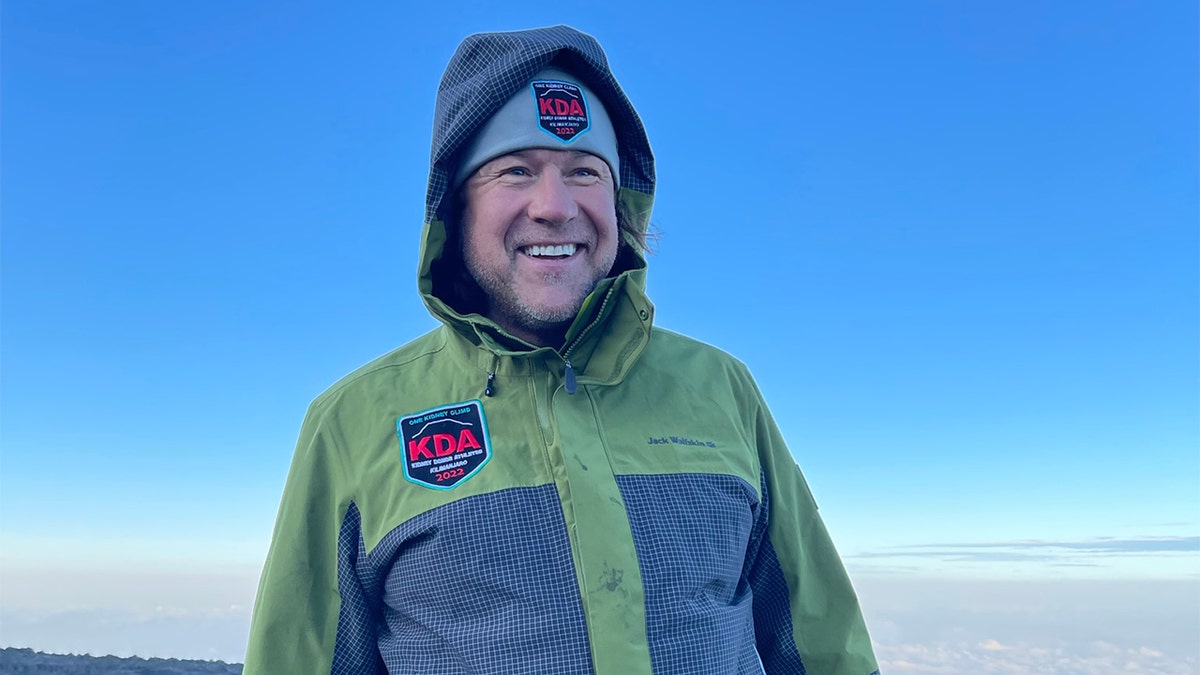
Steve Wilson, of Westchester County, N.Y., donated his kidney to a stranger on Feb. 6, 2020. (Steve Wilson/Courtesy NewYork-Presbyterian)
Wilson was inspired to sign up to become a non-directed kidney donor after seeing a friend’s post on Facebook.
The friend had written that his teenage daughter had recently received a life-saving kidney donation from a stranger.
"If you can make an impact during your time here, it’s a wonderful thing."
"Chills came over me," Wilson said. "I thought, This is the coolest thing I’ve ever seen. This woman was able to save this kid’s life and really, at no cost to her own health."
4-YEAR-OLD GETS NEW HEART FOR HIS BIRTHDAY: ‘ETERNALLY GRATEFUL’
Soon after reading about his friend’s daughter, Wilson went for a long bike ride and figured he would eventually forget about the post — but he didn’t.
When he got home, he started researching kidney donations. He didn’t know anyone who needed a kidney, but he did find out about non-directed transplants.
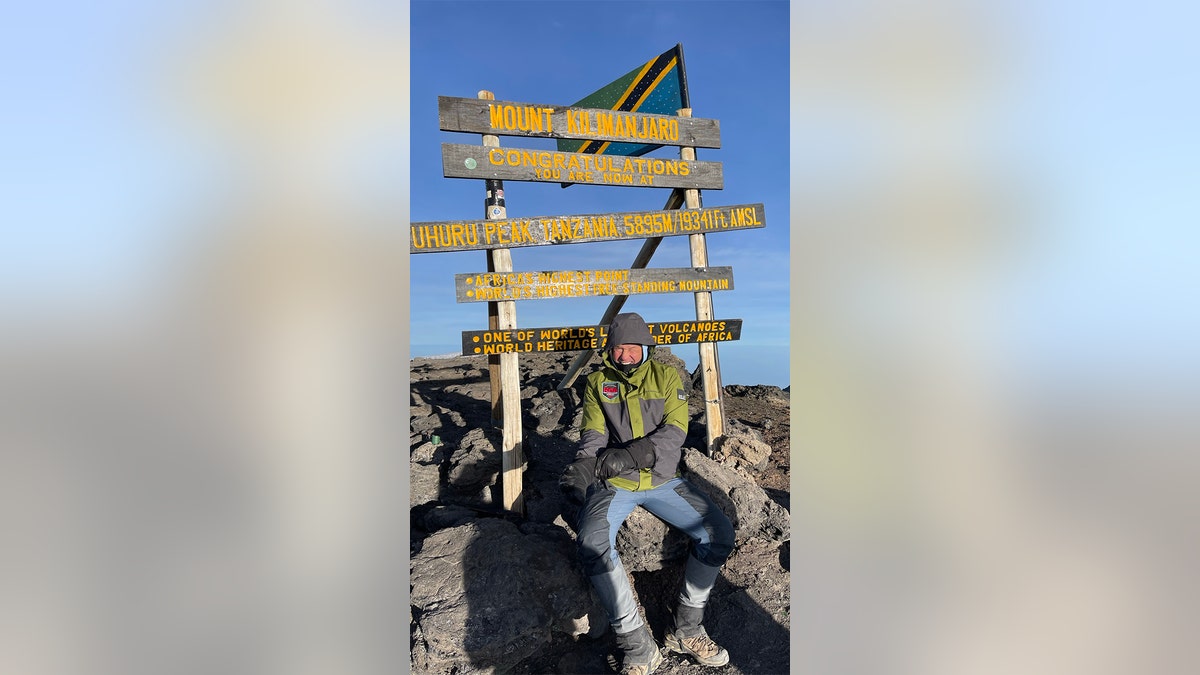
Wilson climbed to the summit of Mt. Kilimanjaro earlier this year to prove that donating a kidney didn’t change his lifestyle. (Steve Wilson/Courtesy NewYork-Presbyterian)
Eventually, Wilson told his wife, Meg, about his idea to become a non-directed donor, and she was "totally supportive," he said.
Wilson began taking the steps to become a kidney donor, including undergoing numerous tests and rigorous physical and psychological evaluations.
'Game changer': Kidney donation in America
There are more than 105,000 adults and children on the national transplant waiting list, according to the Health Resources & Services Administration (HRSA), an agency of the U.S. Department of Health and Human Services. Seventeen people die each day while awaiting an organ, the HRSA reported.
Dr. Sandip Kapur, chief of transplant surgery at NewYork-Presbyterian/Weill Cornell Medical Center — where Wilson had his transplant procedure — told Fox News Digital that the number of people on the national transplant waiting list has been the same for over a decade.
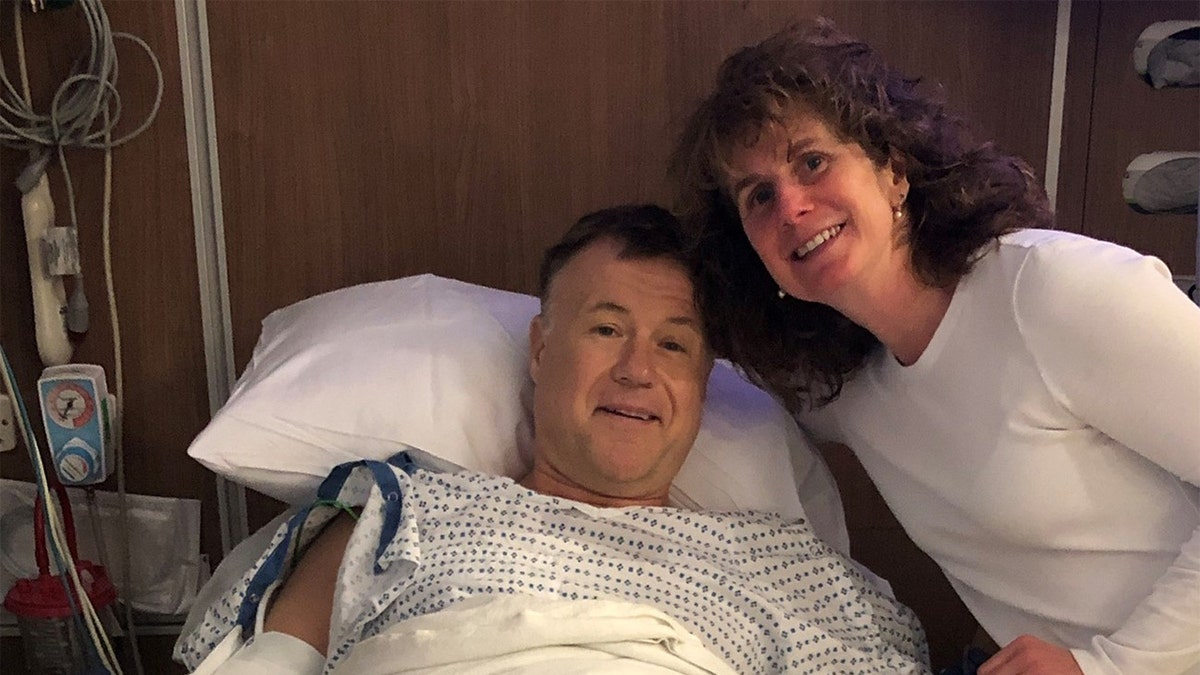
Wilson was inspired to sign up to become a kidney donor after hearing how a friend’s teenage daughter recently received a life-saving kidney donation from a stranger. Wilson is pictured with his wife, Meg. (Steve Wilson/Courtesy NewYork-Presbyterian)
"That really speaks to the fact that even though this need has existed, there hasn’t been a huge increase in the population stepping forward and recognizing it," Dr. Kapur said.
Kapur added that it may be because organ donation has "never really had the same visibility" as diseases such as cancer and heart disease.
"Organ donation in this country, I think, is underappreciated," Kapur said.
SINGLE DAD RECEIVES KIDNEY DONATION FROM TOTAL STRANGER HE FOUND ON SOCIAL MEDIA
Kapur said that living kidney transplants, in particular, are very safe.
All donors, he said, are "put through the best medical evaluation of their life," Kapur said. "Their risk is assessed, not only for the short term, but for the long term."
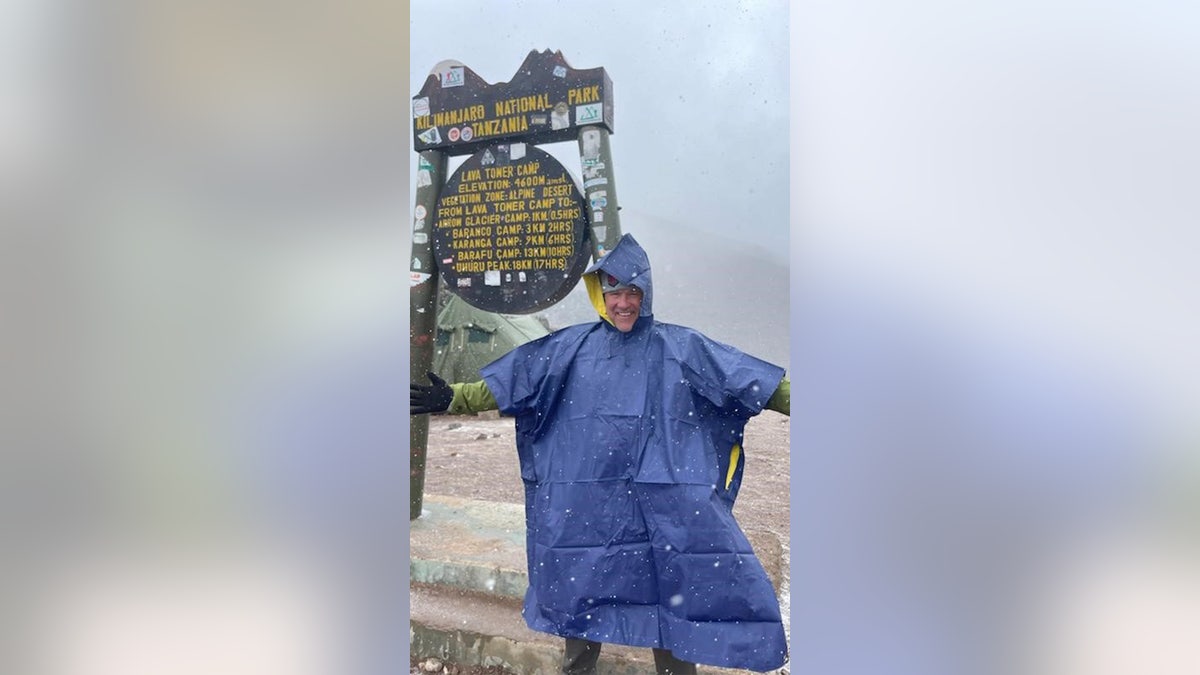
On March 10, Wilson as well as 21 other living kidney donors — all members of Kidney Donor Athletes, a 501(c)(3) — reached the summit of Mt. Kilimanjaro. (Steve Wilson/Courtesy NewYork-Presbyterian)
He added that the whole living donation process — which also includes a psychosocial assessment — protects the donor above all else.
It also helps that the kidney transplant procedure with living donors is common, has advanced significantly in the last decade and no longer requires a large incision, Kapur said.
Wilson’s procedure — which Kapur did not perform — was an even more advanced, minimally invasive procedure called a single-port surgery. Doctors removed Wilson’s kidney using an incision made in his belly button.
"I don’t even have a scar on my belly."
"People are up and about the same day," Kapur said. "They feel well enough to go home the next day, but we keep them in the hospital for safety just for that day."
"It’s a game-changer," Kapur added.
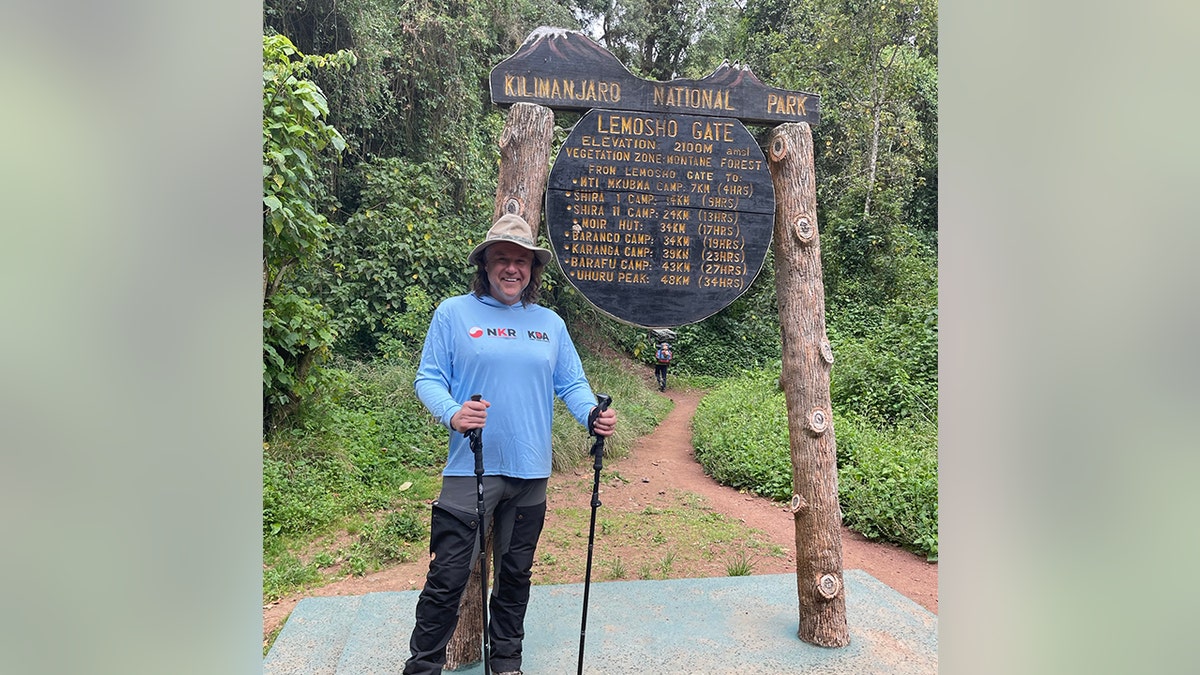
Wilson has climbed Mt. Kilimanjaro before, but this trip was special because of the people he met and the friendships he made during the 10-day climb. (Steve Wilson/Courtesy NewYork-Presbyterian)
Once Wilson had his procedure on Feb. 6, 2020, he left after just one day in the hospital, he said, because of his concerns about the coronavirus, which was just beginning to reach the U.S.
IDENTICAL TWIN BROTHERS EACH RECEIVE HEART TRANSPLANTS: ‘QUITE UNIQUE’
The pain from the procedure was very manageable, he said. After about two weeks, he was back on his indoor bike, training lightly.
"I don’t even have a scar on my belly," Wilson said.
Reaching the summit of Mt. Kilimanjaro
Though he's now minus one kidney, Wilson said so much more has been added to his life. He's had a sense of peace and calm as well as several "wonderful" opportunities, he said.
In March, Wilson and 21 other living kidney donors — all members of Kidney Donor Athletes, a 501(c)(3) — climbed to the summit of Mt. Kilimanjaro to raise awareness about living kidney donations.
The group reached the summit on March 10.
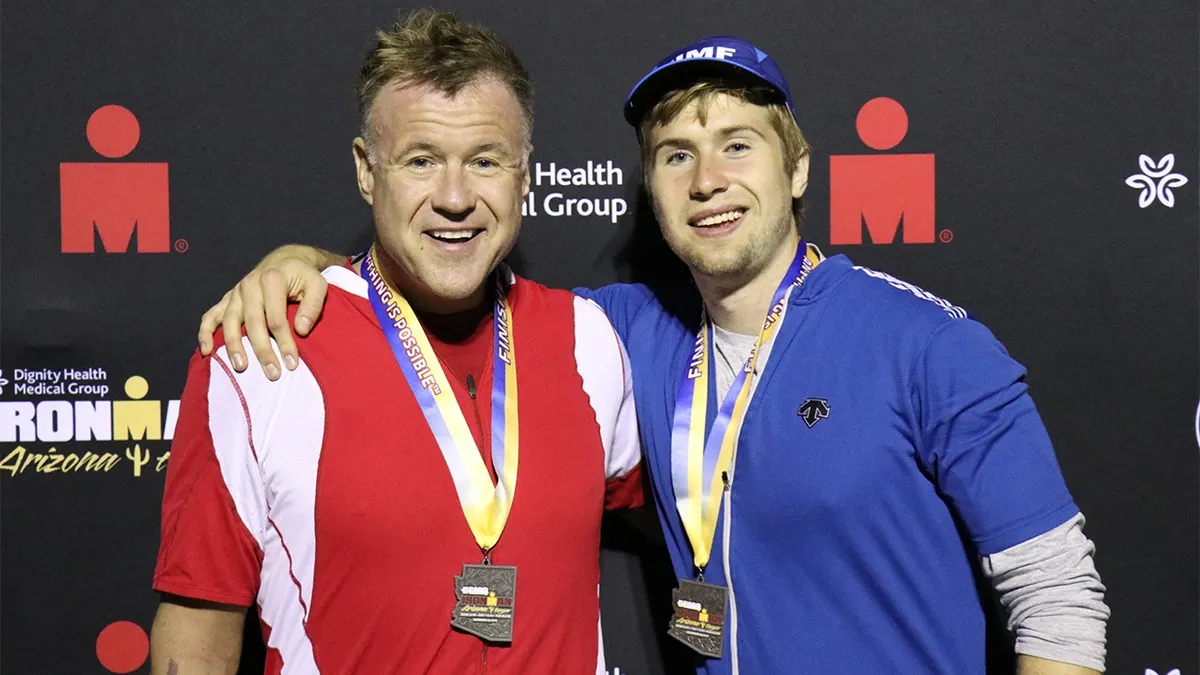
Wilson and his two sons will also be participating in the Hawaii Ironman in October through Wilson's relationship with Kidney Donor Athletes. Wilson is pictured with one of his sons after participating in another Ironman. (Steve Wilson/Courtesy NewYork-Presbyterian)
Wilson has climbed Mt. Kilimanjaro before, but this trip was special because of the people he met.
"It was a wonderful experience to spend 10 days out there with these people," Wilson said. "Twenty out of the 22, I had never met before. I had known all of them through Zoom calls, but I had never met them face-to-face. So that was a fantastic experience."
"It’s such a great trade-off. You’ve given the ultimate gift. You’ve given somebody a second chance at life. And it doesn’t cost you but two weeks of your own."
"I gained a lot of friendships out of it," Wilson said.
CLICK HERE TO GET THE FOX NEWS APP
Wilson will also achieve one of his dreams later this year, in part because of his connections made as a kidney donor.
He said his goal in life was to one day watch the Hawaii Ironman championship race. Now, he and his sons — 24 and 22 — will be participating in the October event through Wilson’s relationship with Kidney Donor Athletes.
‘Thank you for adding so much to my life’
As a living kidney donor, Wilson said the most important thing he wants people to know is that — as he himself experienced — when someone donates a kidney, life really doesn’t change at all.
He also said that if you know someone who needs a kidney, but you aren’t a match, you can still donate your kidney to someone who needs it through the National Kidney Registry (NKR) Voucher Program.
That donor’s intended recipient "can then be prioritized" on the NKR, the registry website says.
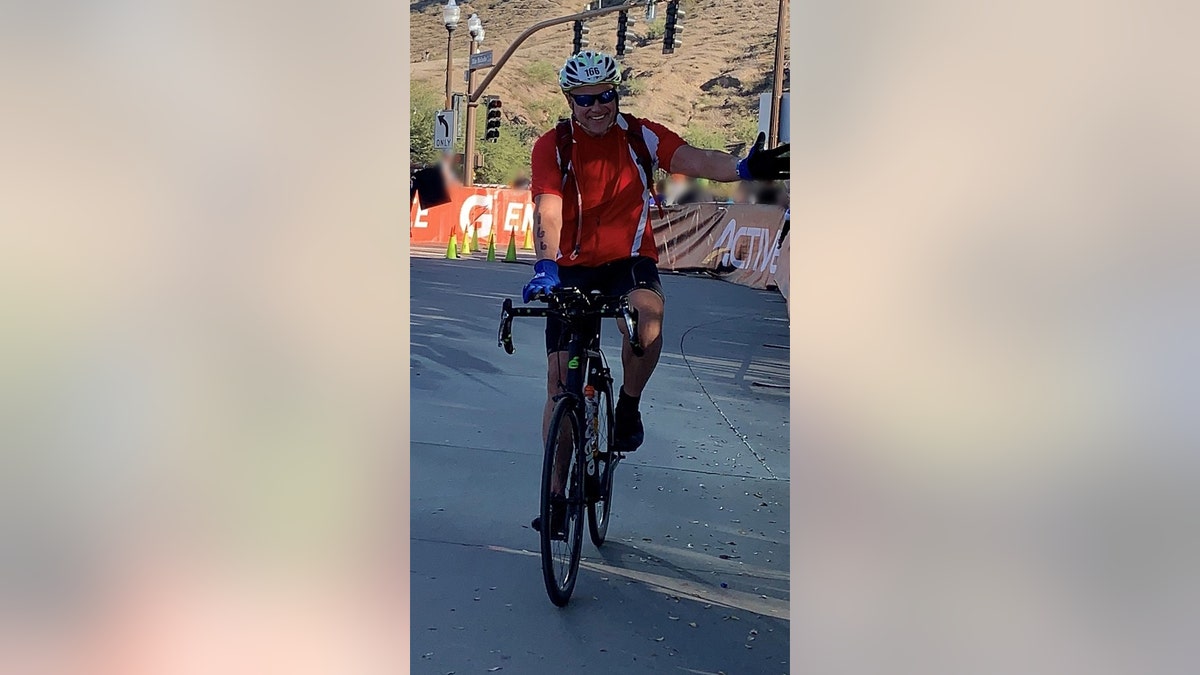
Wilson told Fox News Digital that "the planet's a big place" — so donating a kidney "was a way to make an impact on just one person." (Steve Wilson/Courtesy NewYork-Presbyterian)
"If you can make an impact during your time here, it’s a wonderful thing," Wilson said. "But the planet’s a big place, so it was a way to make an impact on just one person."
Wilson does know that the recipient of his kidney is a woman.
CLICK HERE TO SIGN UP FOR OUR LIFESTYLE NEWSLETTER
He's written her a letter.
"If I would ever meet her, I’d want to give her a hug and say thank you for adding so much to my life," Wilson said.





















